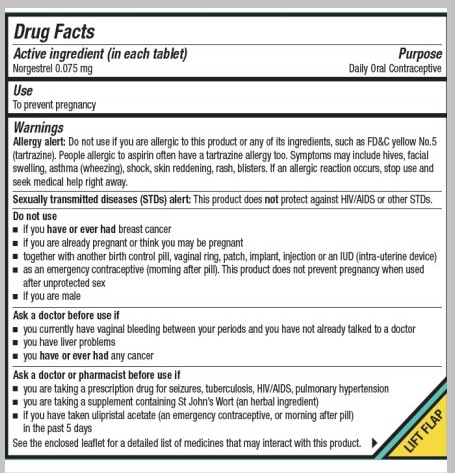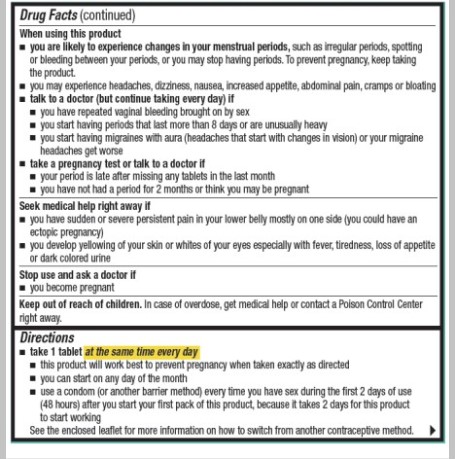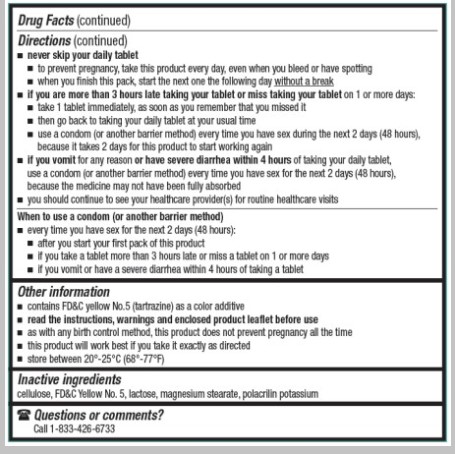First OTC Oral Contraceptive Has Advisory Panel’s Unanimous Support Despite FDA’s Data Concerns
Executive Summary
FDA officials again made clear concerns about “improbable dosing” data in HRA’s sNDA for 0.075-mg norgestrel tablet branded Opill before advisory panel voted at close of a two-day meeting conducted 60 years after first Rx oral contraceptive approved in US.
Some members of a Food and Drug Administration advisory panel had questions and others didn’t about HRA Pharma’s actual user study data but all voted to recommend the agency approve the firm’s proposal for the first OTC switch of an oral contraceptive in the US.
FDA officials again made clear their concerns about “improbable dosing” data in HRA’s supplement new drug application for its 0.075-mg norgestrel tablet branded Opill before the panel voted on 10 May at the close of a two-day meeting conducted online 60 years after the first Rx oral contraceptive was approved in the US.
The agency has about three months to let HRA as well as consumers know whether its doubts will impede approving the Perrigo Company PLC subsidiary’s proposal.
Proposed DFL For
First OTC Oral Contraceptive
 HRA'S APPLICATION FOR OPILL INCUDED A DFL PRINTED ACROSS THREE PANELS, ABOVE AND BELOW, AND GENERATED PLENTY OF DISCUSSION DURING AN FDA ADVISORY PANEL MEETING BEFORE THE MEMBERS VOTED UNANIMOUSLY TO RECOMMEND APPROVAL.
HRA'S APPLICATION FOR OPILL INCUDED A DFL PRINTED ACROSS THREE PANELS, ABOVE AND BELOW, AND GENERATED PLENTY OF DISCUSSION DURING AN FDA ADVISORY PANEL MEETING BEFORE THE MEMBERS VOTED UNANIMOUSLY TO RECOMMEND APPROVAL.
“Today’s vote reflects the strong data showing that Opill can be used safely and effectively over-the-counter,” said Frederique Welgryn, Perrigo’s women’s health vice president.
The advisory panel’s recommendation is non-binding. While the FDA’s decisions track with the recommendations more often than not, one of its notable diversions from its advisors’ thinking was in its rejection of the initial proposal for OTC sales of the Plan B (levonorgestrel / 2 x 0.75-mg) emergency contraceptive in 2013.
A leading advocate in the Senate for expanding access to contraception and for other women’s health issues, Washington Democrat Patty Murray, alluded to the FDA’s decision on Plan B in a statement.
“FDA should trust the experts – who voted unanimously in support of this application – and must not delay in getting over-the-counter birth control on the shelves for American women,” Murray said.
When HRA submitted its sNDA in July 2022, the deadline under the prescription drug user fee program for the FDA to make a decision on the application was 11 May. Perrigo said the date would be extended 90 days due when the FDA in October, after asking HRA to explain the improbable dosing data, postponed the advisory panel meeting originally scheduled for November. (Also see "US FDA Requests More Information, Needs More Time To Review Birth Control OTC Switch Proposal" - HBW Insight, 26 Oct, 2022.)
The progestin-only product was approved for Rx sales in the US in 1973 and remained available through 2005 when HRA discontinued sales as combination ingredient oral contraceptives claimed dominant market share.
‘Realize How Important It Is’
FDA officials speaking during the meeting of the Nonprescription Drug and Obstetrics, Reproductive and Urologic Drugs advisory committees didn’t state doubts about the safety and efficacy of 0.075-mg norgestrel tablets available Rx in the US or about the public health benefit from expanding access to oral contraceptives.
Agency officials were clear, however, about their doubts about some of HRA’s OTC actual use trial data. (Also see "Cloud Over FDA Advisory Panel Meeting From ‘Over-Reporting’ In Birth Control OTC Switch Study" - HBW Insight, 10 May, 2023.)
“I just want to emphasize from the FDA that we really realize how important it is that women have increased access to effective contraception. And I don't want I don't want any of our discussion or our pointing out the deficiencies of the development program to take away from that message,” said Karen Murray, deputy director of the Center for Drug Research and Evaluation’s Office of Nonprescription Drugs.
Speaking before the committees prepared to discuss their recommendation and other questions the FDA presented about OTC oral contraceptives, Murray explained why the agency asked the panel to consider whether “improbable dosing” data could make the overall actual use study results unreliable.
The questioned data indicated some participants, using the electronic diaries provided in the study, reported taking Opill on more days than they did or taking a tablet when they didn’t have any. The over-reporting wasn’t identified by HRA but by FDA staff reviewing the firm’s SNDA.
“When a development program is proposed for a nonprescription drug, we can't just approve it based on the experience in the prescription setting without the applicant doing adequate studies to look at what's likely to happen in the nonprescription setting,” Murray said.
“It would have been a much easier time for the agency if the applicant had submitted a development program and an actual use study that was very easy to interpret and did not have so many challenges. But that was not what happened for us. So the FDA has been put in a very difficult position of trying to determine whether it is likely that women will use this product safely and effectively in a nonprescription setting.”
Members: Let’s Move To Recommending
The range of panel members’ thinking about the over-reporting was evident in comments by Kathryn Curtis, an epidemiologist at the Centers for Disease Control and Prevention Division of Reproductive Health/Women's Health and Fertility Branch, and Katalin Roth, a professor of medicine at the George Washington University Hospital Division of Geriatrics and Palliative Medicine and an NDAC member.
They made their comments during the committees’ response the FDA’s request for recommendations for changes to HRA’s actual use study design if it asked the firm to conduct another study (see related story).
“The improbable dosing issue is important and I don't think it's been adequately addressed and certainly leads to some uncertainty in the findings. But despite this, I would not recommend another actual use study at this time and I think we can make a decision on the totality of the evidence,” said Curtis, participating as an ORUDAC member.
Roth, an NDAC member, expressed a different regard for over-reporting. “We're talking about birth control pills, which come in a package labeled day one through day 28,” she said.
“The statistical problem that we're talking about is not about reporting adverse effects. It's not about reporting unintended pregnancies. It's only about whether the women in the study accurately reported or over-reported whether or not they took the pills,” she added.
Over-Reporting In Previous OTC Switch Application
HRA/Perrigo’s lead women’s health executive speaking to the committees, scientific affairs senior director Irene Laurora, noted in response to a panel member’s question that FDA officials had acknowledged participants’ over-reporting wasn’t caused by “systematic problems in the study.”
Laurora and other HRA staff and consultants working with the firm repeated at multiple points during their presentations that the over-reporting, which the FDA says it found from 30% of the participants, didn’t affect the overall results of the actual use study.
“Our primary analysis showed you that people do understand how to take one pill a day and that they follow the label directions,” Laurora said.
One of HRA’s consultants, Arthur Stone, director of the Center for Self-Report Science and a professor of psychology, economics and public policy at the University of Southern California, pointed out that participants’ over-reporting of their product also was found in an actual use trial conducted for another first-in-class OTC switch, overactive bladder drug Oxytrol for Women.
The FDA approved the 3.9-mg oxybutynin transdermal system in 2013 after an NDAC panel voted 6-5 to say the application sponsor had not shown consumers could safely self-select Oxytrol in an OTC setting. (Also see "Oxytrol For Women Gets OTC Green Light As Rare First-In-Class Switch" - HBW Insight, 28 Jan, 2013.)
Stone said over-reporting in the Opill actual use study reached the extent the FDA found “because the very rare conditions to allow for over-reporting of this kind existed.”
The conditions were that HRA’s study design allowed participants to continue to use their e-diaries when no pills were available to them.
“That's an extraordinary circumstance when that happens. It's happened a few times in the past. The Oxytrol trial was one example of that. When the conditions are right, people do this kind of over-reporting, but it is rare and it's rare because the conditions do not exist for it to be seen very often,” Stone added


